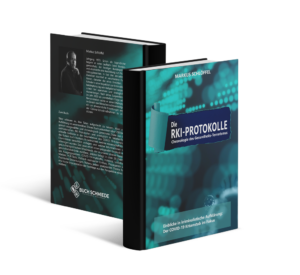Freier Immobilienmakler trennt sich von Immobilienvermittlungs Unternehmen – Wer darf die noch offenen Aufträge verwursten? – im Gespräch mit Dr. Schulte, Rechtsanwalt aus Berlin.
Ist ein freier Immobilienmakler im Auftrag eines Immobilienmaklerunternehmens unterwegs, so gilt meist das Handelsvertreterrecht (§ 84 bis § 92 Handelsgesetzbuch (HGB)). Dies regelt die rechtliche Beziehung zwischen Handelsvertreter und Handelsstand. Laut HGB ist die Legaldefinition eines Handelsvertreters folgende “Handelsvertreter ist, wer als selbstständiger Gewerbetreibender ständig damit betraut ist, für einen anderen Unternehmer (…) Geschäfte zu vermitteln oder in dessen Namen abzuschließen. Selbständig ist, wer im Wesentlichen frei seine Tätigkeit gestalten und seine Arbeitszeit bestimmen kann.” § 84 Abs. 1 HGB. Der Handelsvertreter ist somit kein Angestellter nur ein selbstständiger Vermittler. Dies bedeutet in Bezug auf den selbständigen Immobilienmakler, dass dieser Kunden (unter dem Namen des Unternehmens (des Handelsstands)) akquiriert und das Geschäft an diesen weitergeleitet. Der Kauf oder Verkauf von Immobilien wird dann über den Handelsstand abgewickelt und der Makler bekommt einen Teil der Provision (vgl. § 87 HGB).
Herausforderungen bei der Trennung zwischen Immobilienmakler und Immobilienunternehmen
Schwierig wird es, wenn es zu einer Trennung des Immobilienmaklers und des Immobilienunternehmens kommt. Unter Umständen sind dann vom Makler anberaumte Geschäfte noch in der Schwebephase. Gemäß § 87 Abs. 3 Nr. 1 HGB hat der Handelsvertreter auch dann noch einen Anspruch auf Provision, wenn er das Geschäft vermittelt, eingeleitet oder vorbereitet hat und das Geschäft innerhalb einer angemessenen Frist abgeschlossen wurde. Meist sind die in Frage kommenden Geschäfte in einem Aufhebungsvertrag aber noch einmal genau benannt, sodass hier keine Missverständnisse auftreten können.
Was ist aber, wenn ein Makler ein Geschäft an das Unternehmen heranträgt – es noch zu keinem Abschluss eines Maklervertrags kommt – und dann eine Trennung zwischen Makler und Unternehmen folgt?
 Darf der nun nichtmehr seinem vorherigen Handelsstand verpflichtete Makler nun selbst einen Maklervertrag mit dem Kunden abschließen? Darf der Makler dann sein bei der Arbeit für den Handelsstand erworbenes Wissen nutzen oder verstößt er hierbei gegen wettbewerbsrechtliche Grundsätze?
Darf der nun nichtmehr seinem vorherigen Handelsstand verpflichtete Makler nun selbst einen Maklervertrag mit dem Kunden abschließen? Darf der Makler dann sein bei der Arbeit für den Handelsstand erworbenes Wissen nutzen oder verstößt er hierbei gegen wettbewerbsrechtliche Grundsätze?
Sollte im Aufhebungsvertrag ausdrücklich vereinbart worden sein (Kundenschutzklausel), dass dies untersagt ist, sollte der Makler dies im wohl tunlichst vermeiden.
Es wurde vom Kammergericht Berlin – das Oberlandesgericht des Landes Berlin – entschieden (Beschluss vom 25.03.2011 5 W 62/11), dass ein Handelsvertreter Loyalitätspflichten unterliegt. Auch wenn die Geschäftsbeziehung endet soll dieser nicht nach Beendigung der Zusammenarbeit unmittelbar einen Maklervertrag anberaumen. Dies gilt allerdings nur, wenn eine Kundenschutzklausel ausdrücklich im Aufhebungsvertrag vereinbart worden ist.
Berufsauffassung: Handelsvertreter gleich ordentlicher Kaufmann
Generell darf ein Handelsvertreter gemäß § 90 HGB “Geschäfts- und Betriebsgeheimnisse, die ihm anvertraut oder als solche durch seine Tätigkeit für den Unternehmer bekannt geworden sind, auch nach Beendigung des Vertragsverhältnisses nicht verwerten oder anderen mitteilen, soweit dies nach den gesamten Umständen der Berufsauffassung eines ordentlichen Kaufmannes widersprechen würde.” Gemäß dem Berliner Kammergericht darf ein ausgeschiedener Handelsvertreter während seiner Beschäftigungszeit erworbene Kenntnisse jedoch unter Umständen doch für sich nutzen. Allerdings darf er hierbei nur Informationen verwenden, die er sich im Gedächtnis bewahrt hat. Auf schriftliche Unterlagen aus seiner Beschäftigungszeit darf somit nicht zugegriffen werden (vgl. Kammergericht Berlin Beschluss vom 25.03.2011 5 W 62/1). Dies gilt insbesondere, wenn noch kein Maklervertrag zwischen dem Kunden und dem Immobilienunternehmen zustanden gekommen ist und der Kunde nunmehr an den Makler herantritt, um einen Maklervertrag zu schließen. Dies ist in der Praxis ein schlüssiger Vorgang, da beim Immobilienverkauf der persönliche Kontakt zum Makler eine große Rolle spielt und dem Kunden egal ist ob sein Makler der Wahl für ein Unternehmen vermittelnd tätig ist oder selbst als Makler auftritt.
V.i.S.d.P.:
Valentin Markus Schulte
Volkswirt, stud. iur.
Englische Übersetzung:
Real estate agent: Purchase and sale of real estate
Free real estate agent separates from real estate switching enterprise – who may use the still open orders? – in the discussion with Dr. Schulte, attorney from Berlin.
If a free real estate agent is on the way on behalf of a real estate agency enterprise, then usually the commercial agency right (§ 84 to § 92 commercial code (HGB)) applies. This regulates the legal relationship between the commercial agent and the commercial estate. According to the HGB, the legal definition of a commercial agent is the following „A commercial agent is anyone who, as an independent trader, is permanently entrusted with brokering business for another entrepreneur (…) or concluding business on the latter’s behalf. A self-employed person is one who is essentially free to organize his activities and determine his working hours.“ § Section 84 (1) HGB. The commercial agent is therefore not an employee but a self-employed intermediary. In relation to the self-employed real estate agent, this means that the agent acquires customers (under the name of the company (the commercial agent)) and forwards the business to them. The purchase or sale of real estate is then handled by the trading stand and the broker receives part of the commission (cf. § 87 HGB).
Challenges in the separation between real estate broker and real estate company
Difficulties arise when there is a separation of the real estate broker and the real estate company. Under certain circumstances, transactions arranged by the real estate agent are then still in the pending phase. Pursuant to Section 87 (3) No. 1 of the German Commercial Code (HGB), the commercial agent is still entitled to commission even if he has brokered, initiated or prepared the transaction and the transaction has been concluded within a reasonable period of time. In most cases, however, the transactions in question are specified again in detail in a termination agreement, so that no misunderstandings can arise here.
But what if a broker approaches the company with a transaction – a brokerage agreement has not yet been concluded – and then a separation between the broker and the company follows?
May the broker, who is no longer committed to his previous trading status, now conclude a brokerage contract with the customer himself? Is the broker then allowed to use his knowledge acquired while working for the trading stand or does he violate principles of competition law in doing so?
If it has been expressly agreed in the termination agreement (customer protection clause) that this is prohibited, the broker should avoid this as far as possible.
It was decided by the Kammergericht Berlin – the Higher Regional Court of Berlin – (decision of 25.03.2011 5 W 62/11) that a commercial agent is subject to duties of loyalty. Even if the business relationship ends, the agent is not supposed to start a brokerage contract immediately after the end of the cooperation. However, this only applies if a customer protection clause has been expressly agreed in the termination agreement.
Professional opinion: Commercial agent equals ordinary businessman
In general, according to § 90 HGB, a commercial agent may not „exploit or disclose to others business and trade secrets entrusted to him or which have become known to him as such through his work for the entrepreneur, even after termination of the contractual relationship, insofar as this would contradict the professional view of a prudent businessman according to the overall circumstances.“ According to the Berlin Court of Appeal, however, a commercial agent who has left the company may, under certain circumstances, use knowledge acquired during his period of employment for his own benefit. However, he may only use information that he has retained in his memory. Thus, written documents from his employment period may not be accessed (see Kammergericht Berlin decision of 25.03.2011 5 W 62/1). This applies in particular if no brokerage contract has yet been concluded between the customer and the real estate company and the customer now approaches the broker in order to conclude a brokerage contract. In practice, this is a conclusive process, since personal contact with the broker plays a major role in real estate sales and the customer does not care whether his broker of choice acts as an intermediary for a company or acts as a broker himself.
V.i.S.d.P.:
Valentin Markus Schulte
Economist, stud. iur.
Kontakt / Contact:
Rechtsanwaltskanzlei Dr. Thomas Schulte
Malteserstraße 170
12277 Berlin
Telefon: +49 30 221922020
E-Mail: valentin.schulte@dr-schulte.de
Die Kanzlei Dr. Schulte Rechtsanwälte ist seit 1995 erfolgreich zivilrechtlich schwerpunktmäßig auf dem Gebiet des Internets-, Reputations- und Wettbewerbsrecht tätig. Sie vertritt bundesweit die Interessen einzelner Anleger. Ergänzende Absenderangaben mit dem Kanzleistandort finden Sie im Impressum auf der Internetseite www.dr-schulte.de.
PRESSEKONTAKT
Dr. Schulte Rechtsanwalt
Dr. Thomas Schulte
Malteserstrasse 170
12277 Berlin
Website: https://www.dr-schulte.de
E-Mail : dr.schulte@dr-schulte.de
Telefon: 030 22 19 220 20
Telefax: 030 22 19 220 21




